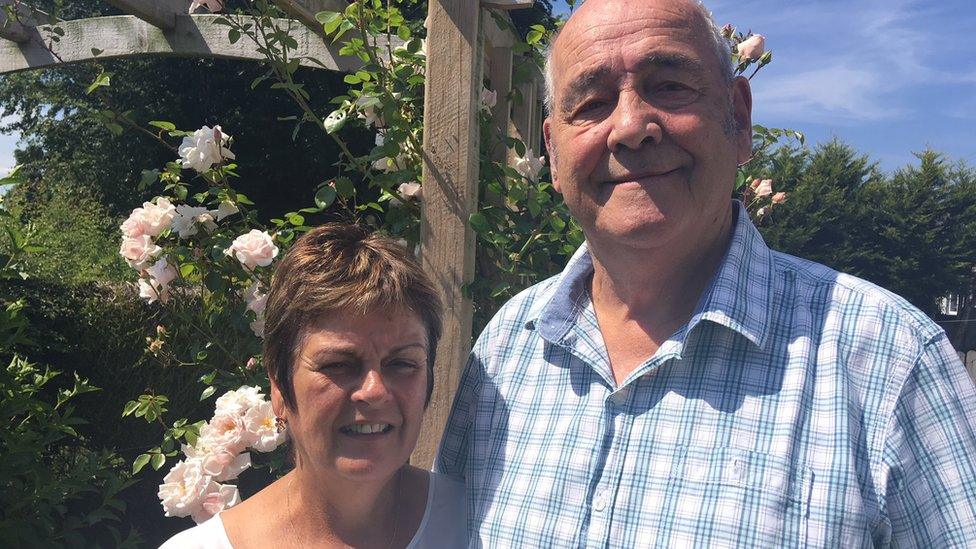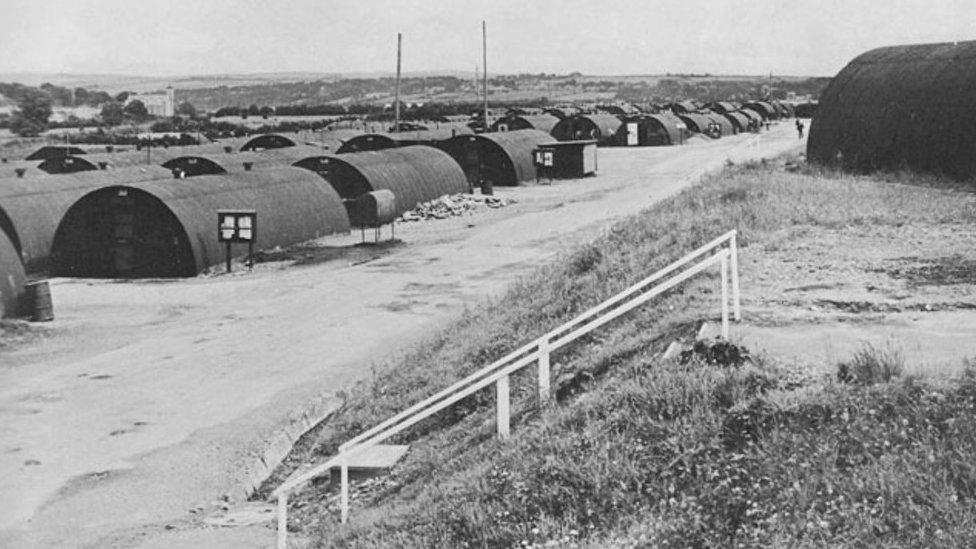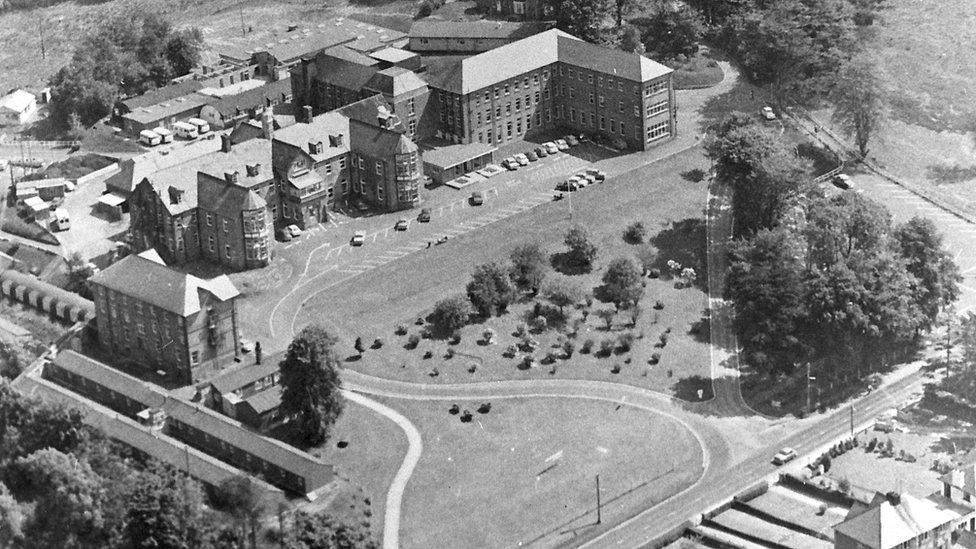NHS at 70: First male matron helped write history
- Published

Alwyn Boardman, with his wife Marie, says he was the first person in Derry to get penicillin
At 80 years old, Alwyn Boardman can remember a time before the NHS, but as it turns 70, he can say he helped write its history.
As a five year old, he became the first person at the City and County Hospital in Londonderry to get penicillin, saving an infected leg from amputation.
After a stint in a bag factory, he began a career in nursing.
Then in 1975, he became the first male matron in Northern Ireland at the Tyrone County Hospital in Omagh.
"I got a lot of ribbing, you know - where's your frock and where's your hat and all that - but I thought it was accepted very well by people in Omagh," he said.
'Wild smell'
During the Second World War, Mr Boardman found himself in Carricklee in Strabane as an evacuee - a time when healthcare was paid for.
"We were building an Easter hut and part of the wall fell on my leg and broke it," he recalled.
Nobody believed his leg was broken and when he was made to walk on it, he passed out. It was then he was taken to hospital in Derry.
"I was there for 11 months," he said.
"And my father, who was ex-service, had to pay 3s 6d or 4s 6d a week for me to stay there."
Mr Boardman contracted an infection in his fracture - osteomyelitis.
It was so severe doctors wanted to amputate his leg but his mother would not consent.
Then, just as time was running out, salvation appeared in the form of a US Navy boat docked in the harbour.

The US Navy set up camp in Londonderry during the Second World War
"The doctor from there, he came up to the hospital and he came to see me.
"My whole leg was in plaster and it was rotten. There was a wild smell off it.
"And the doctor said, 'I'll give you something that will help this fella'.
"So I got penicillin. I was the first person in Derry to get penicillin."
'Asking the impossible'
The drug saved his leg and he had an active childhood playing sport.
But then the time came for him to get a job.
After working for a time in a bag factory, operated by an elderly Austrian Jew who had fled the Nazis, he decided to apply for psychiatric nursing in what was then known as the asylum, before moving to Gransha Hospital where he spent 10 years.
"Then I went to Altnagelvin and did my general nursing. Eventually I got a job in casualty," he said.
After that Mr Boardman found himself in Omagh in 1975 as a hospital matron.

Mr Boardman worked at Tyrone County Hospital for a decade
He spent 10 years at the Tyrone County, before going to work at the then Western Health and Social Services Board as assistant chief nurse, then acting chief nurse.
While he loved the work, he found the last few years of his career tough as the demand for savings grew.
"You were going around the different units telling them they had to save 2.5%, then they were having 2.5% taken off them.
"You can ask that once or maybe twice but you were asking the impossible, and that wasn't very nice for me.
"The further you get up, the further you get away from the patients. And when you were with patients all your life, it's not as easy."
'One pence'
Mr Boardman celebrated his 80th birthday, just a few days before the NHS turned 70.
After working his whole life in the health service, now he is benefitting from it.
"I have an artificial valve and I get my blood checked every couple of weeks," he said.
"I think the NHS is brilliant - it means everything to everybody. There's very few people that don't need the health service at some time.
"The problem now is the funding of it. They can do more for you and all these new procedures they can do are expensive.
"People talk about putting one pence on income tax and I would be the first to say okay, because we don't want to lose our health service."